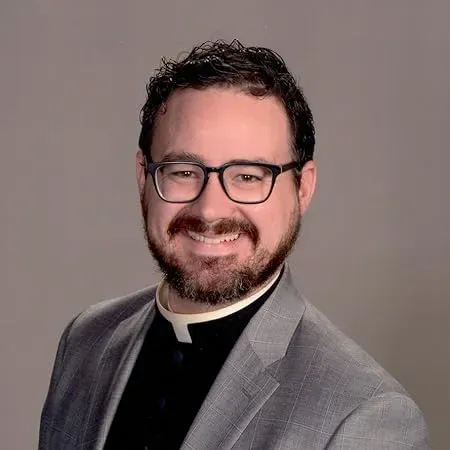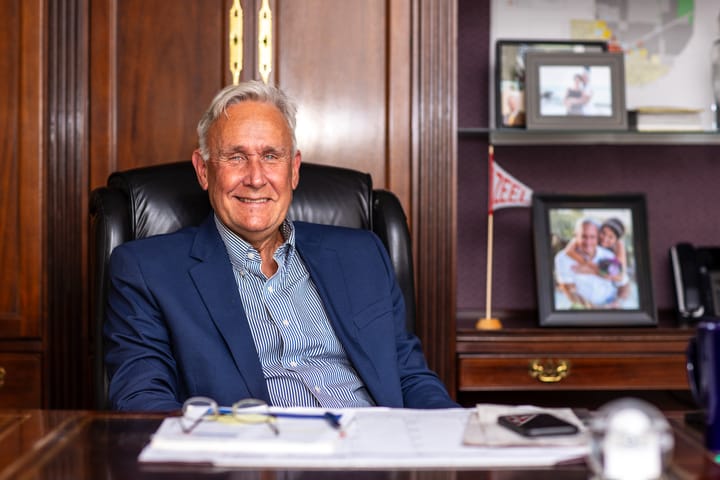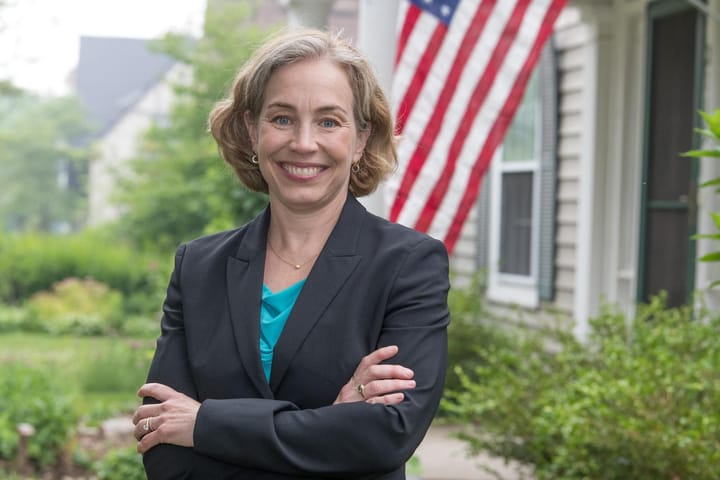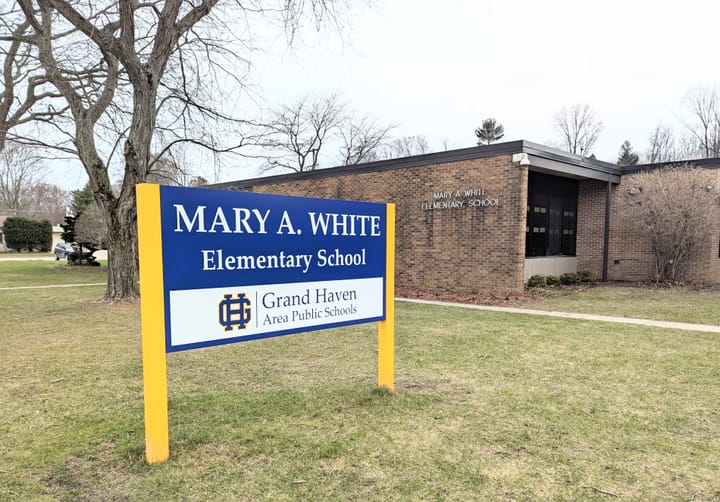OTTAWA COUNTY — The Ottawa County Board of Commissioners agreed Tuesday to pay $100,000 to settle a religious discrimination lawsuit filed late last year.
Rev. Jared Cramer sued Ottawa County in October 2023 in U.S. Western District Court, claiming Board Chair Joe Moss used his position to not grant Cramer’s request to provide an invocation for a commissioners meeting last year.
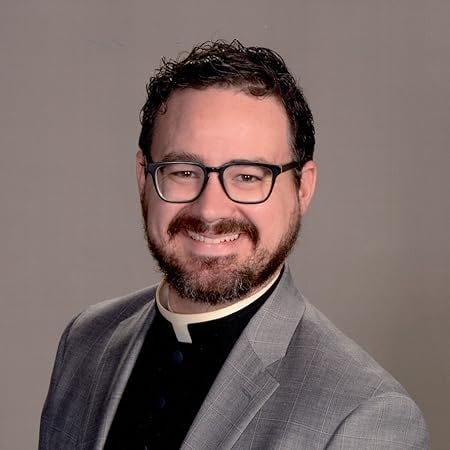
Cramer’s lawsuit claims that Moss endorsed “a particular set of religious beliefs and exclude a particular set of religious beliefs" and therefore "is discriminating against certain religious beliefs," which is a violation of the Establishment Clause of the First Amendment.
Cramer’s attorney, Sarah Riley-Howard, argued that the county enacted a formal invocation policy only after the lawsuit was filed and despite formally inviting Cramer to give an invocation late last year, it was too little, too late.
Read More: Moss offers to let pastor give invocation, but it's too little, too late
"The fact that, once they were sued, (the board) voted to implement a policy designed to follow the law and made a belated invitation to (Cramer) to lead the prayer does not let them avoid the legal remedies to which (Cramer) is entitled," Howard wrote in a Feb. 9 response to Kallman's request for dismissal.
The agreement comes after U.S. Magistrate Sally J. Berens issued a written order saying the court had “been informed of the parties' agreement to settle this matter in principle subject to board approval.”
At the board’s Tuesday, Nov. 12, regular meeting, commissioners went into closed session for about 20 minutes, then came back into open session and approved the agreement in a 9-2 vote with Commissioners Jacob Bonnema and Doug Zylstra dissenting.
“I voted no on the settlement agreement because I am unsure whether this is the best agreement possible for Ottawa County taxpayers. There may very well have been other options that would have reduced or even eliminated the amount that taxpayers would have been obliged to make,” Zylstra said on social media.
In the settlement agreement, which was filed with the court Tuesday afternoon, the county agrees to pay Cramer $100,000 — $26,000 covers his legal fees with his attorney, Sarah Riley-Howard. The remaining $74,000 will divided up between equally between local nonprofits: Children’s Advocacy Center, Kenzie's Be Cafe in Grand Haven and a future nonprofit of Cramer’s choice; Cramer later confirmed that the third recipient would be the Momentum Center.
“This settlement agreement was not about me benefiting in any way financially,” Cramer said after the agreement was filed with the court. “It was about seeking to make right the harm or the damage that would normally go to me and instead giving them to charities who serve marginalized communities or have been affected by this more discriminatory policies and practices.”
The county also agrees to not make budget adjustments to future public funding from the organizations based on the settlement payments.
The county also agrees for the court to continue to have jurisdiction over the case for the next four years, meaning if the county were to adopt an invocation policy inconsistent with state or federal mandates during the next four-year term, Cramer has leave to file directly with the judge in the case to be heard.

Proposed Consent Judgment 11.12.24262KB ∙ PDF fileDownloadRead the settlement agreement filed today settling the Cramer litigation.Download
The county agrees to not allow commissioners to post signs or otherwise interfere with those leading invocations and prayers from the commission’s dais during the invocation, a nod to the meeting in February when Commissioner Roger Belknap posted a “Save the Children” sign during Cramer’s eventual invocation.
Read More: Ottawa Commissioner Belknap displays problematic sign during long-awaited invocation
Cramer, of St. John’s Episcopal Church in Grand Haven, claims he first asked Commissioner Roger Bergman, who represents the city of Grand Haven, if he could join the historically practiced rotation of area faith leaders who provide the invocation at the twice-monthly board meetings. He was directed to Moss.
Howard said Moss abused his power to reward or punish local faith leaders based on whether they align with his personal religious beliefs.
Moss is the founder of far-right fundamentalist group Ottawa Impact, created in 2021 after he took issue with pre-K-6 school mask mandates during the COVID-19 pandemic. The group currently controls six seats on the 11-member board of commissioners.
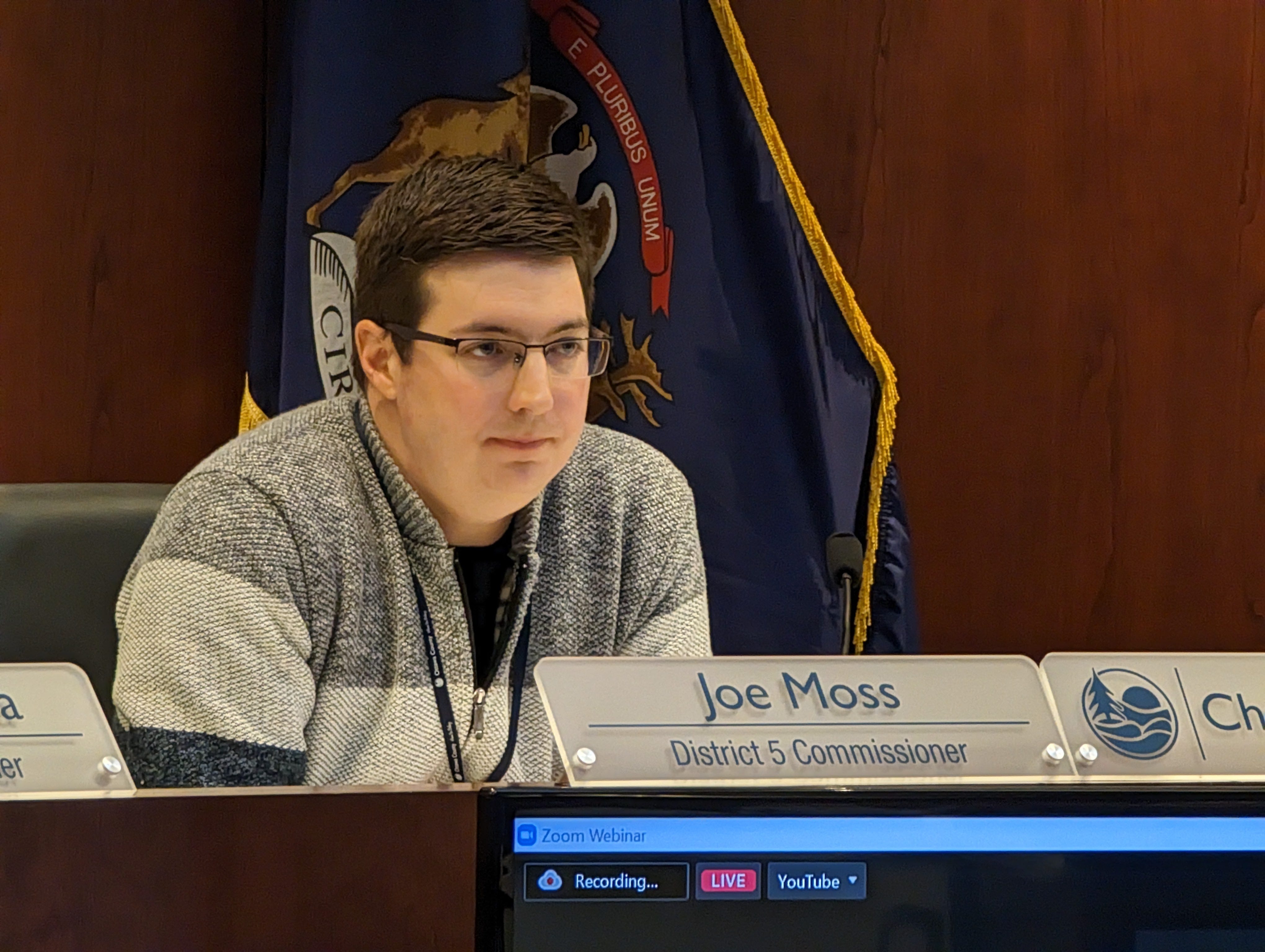
Howard said that, despite sending Moss an email in May and a letter via certified mail in August, her client only received an invitation to give an invocation after litigation was filed.
Moss has never responded to this reporter’s requests for comment since he took office in January 2023.
"It's not clear what else Rev. Cramer could have done to get on that list," Howard wrote in previous filings. "He had given the prayer in the past, he had made a request to the commissioners of the districts where he lived and worked, and he had made a request to the chairman of the commission. Nonetheless, Rev. Cramer did not receive an invitation to lead the prayer."
Cramer ultimately gave an invocation prior to a commissioner meeting in February.
Ultimately, Cramer said the experience was worth it.
“I think that when municipalities or governmental organizations discriminate religiously, it has a chilling effect on free speech and the free exercise of religion, and that's why I was very clear that there did need to be consequences, so that future government bodies would know that you cannot violate the First Amendment and then say, ‘Oh, I guess I'm sorry, I won't do that again,’” Cramer said.
“They just kind of make that be okay. There needs to be consequences that this is a really important principle in our country, and so I'm glad that it's done, but I'm glad that there were consequences.”
Cramer said he’s heartened that there are some guardrails in place so the county can’t violate the policy again or revise it to be non-compliant with the law.
“People giving the invocation cannot be harassed by a sitting commissioner when all they're trying to do is give an invocation as a member of unity,” he said, although he’s encouraged by the incoming board that will assure that OI no longer holds a majority. “I think it's unlikely to happen again, but anything is possible, and so it’s good to be sure that there is a clear way to respond.”
The settlement comes after numerous attempts by the county to derail the litigation.
In July, U.S. District Court Judge Jane M. Beckering ruled that the county’s request to dismiss the case didn’t negate the fact that Cramer experienced potential discrimination.
“The harm alleged by Rev. Cramer is anchored not in future events but in disputed interpretations of past events,” Beckering wrote in the opinion published Tuesday. “His pleading sufficiently alleges a concrete factual context from which his claims arise. The court further determines that judicial resolution of the claims would be desirable under all of the circumstances.”
Just last week, the county lost another motion — this time to disqualify Howard from representing Cramer because she also is representing Commissioner Chris Kleinjans in a lawsuit against Michigan State University’s Extension Office, which has been amended to include Moss as an individual defendant.
In her ruling denying the disqualification request, Beckering said there was no evidence of a direct conflict.
“While Attorney Howard is acting as an advocate in Rev. Cramer’s case against the Commission, of which Kleinjans is now a member, Attorney Howard is not suing Kleinjans in his individual capacity; rather, Rev. Cramer’s suit challenges the propriety of the decision of the political body,” Beckering wrote in her order dated Wednesday, Oct. 23.
Kleinjans, who joined the commission on May 23 after winning a May 7 special recall election this year, filed his own lawsuit June 21 in the U.S. Western District Court claiming Extension violated his First Amendment Rights after giving him an ultimatum after he was elected: Take an unpaid leave through the remainder of the year or face termination.
He has since lost in the general election to non-OI Republican Jordan Jorritsma.
If the deal settles four of six active lawsuits filed against the Ottawa County Board of Commissioners since the OI majority was sworn into office in January 2023.
In February, Administrative Health Officer Adeline Hambley and the county settled her yearlong wrongful termination lawsuit with her remaining in her role.
Although Hambley didn’t receive any additional compensation, the settlement agreement allowed a judge to determine if Hambley’s legal fees would be covered. In August, the judge in the case concluded the county must pay more than $188,000 for Hambley’s legal fees (she also was represented by Howard).
In October 2023, a finalist for an executive aide position, sued in Ottawa County's 20th Circuit Court, claiming then-administrator John Gibbs committed age discrimination when he hired a younger candidate with fewer qualifications than the county required.
Ryan Kimball settled with the county in September this year, with the county agreeing to pay $150,000 to Kimball and $75,000 to his attorneys.
Also in September, the Michigan Supreme Court declined to weigh in on a lawsuit filed in March 2023 alleging that the incoming OI commissioners violated the state's Open Meetings Act in the months after being elected, but before taking office.
The Michigan Court of Appeals unanimously ruled Jan. 26 that Muskegon County 14th Circuit Court Judge Matthew R. Kacel didn't make a legal error when he dismissed the lawsuit. With the state high court refusing to take up the case, it ended the litigation.
Two lawsuits remain active against the board:
Gibbs sued in April this year after he was fired Feb. 29. Moss motioned to terminate Gibbs for cause during a public meeting — largely focused on allegations Moss publicly published on social media from Gibbs’ staff.
In federal court, Gibbs claimed the board retaliated against him, violated his First Amendment rights and that Moss defamed him on social media that “lack factual support” and that Moss “knew that the defamatory statements were false.”
There currently are no scheduled proceedings in the Gibbs case.
Sentinel Leach is a reader-supported publication. To receive new posts and support my work, consider becoming a free or paid subscriber.
The other active lawsuit was filed Oct. 30 with two local residents claiming Freedom of Information Act requests they filed respectively with the county were not fulfilled adequately to what state law requires.
The case was filed in Ottawa County’s 20th Circuit Court and is awaiting scheduling.
There also are no currently scheduled proceedings in the Kleinjans case, with proposed case schedules due to the court by Nov. 11.
— Contact Sarah Leach at SentinelLeach@gmail.com. Follow her on Twitter @SentinelLeach. Subscribe to her content at sentinelleach.substack.com.

